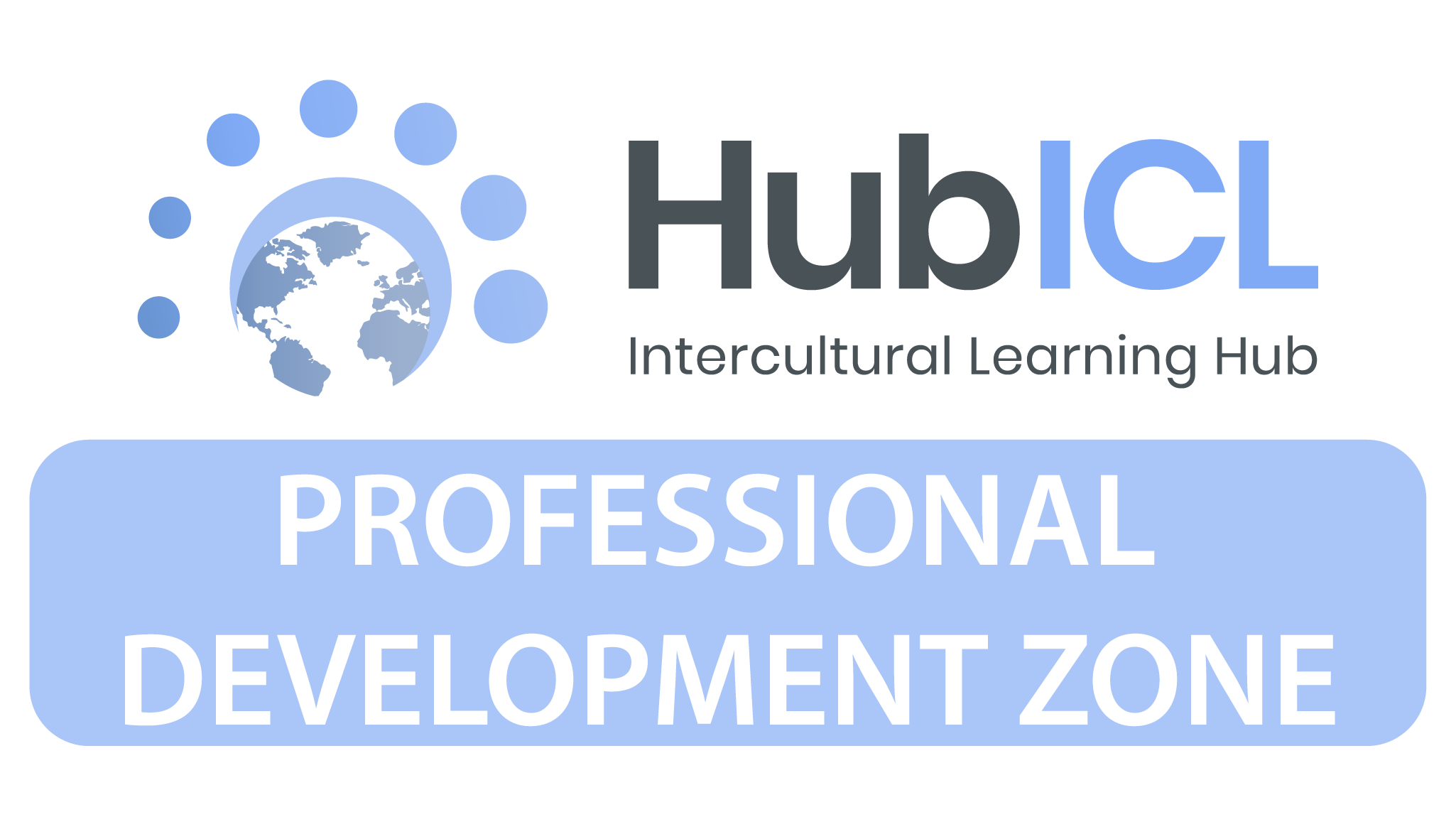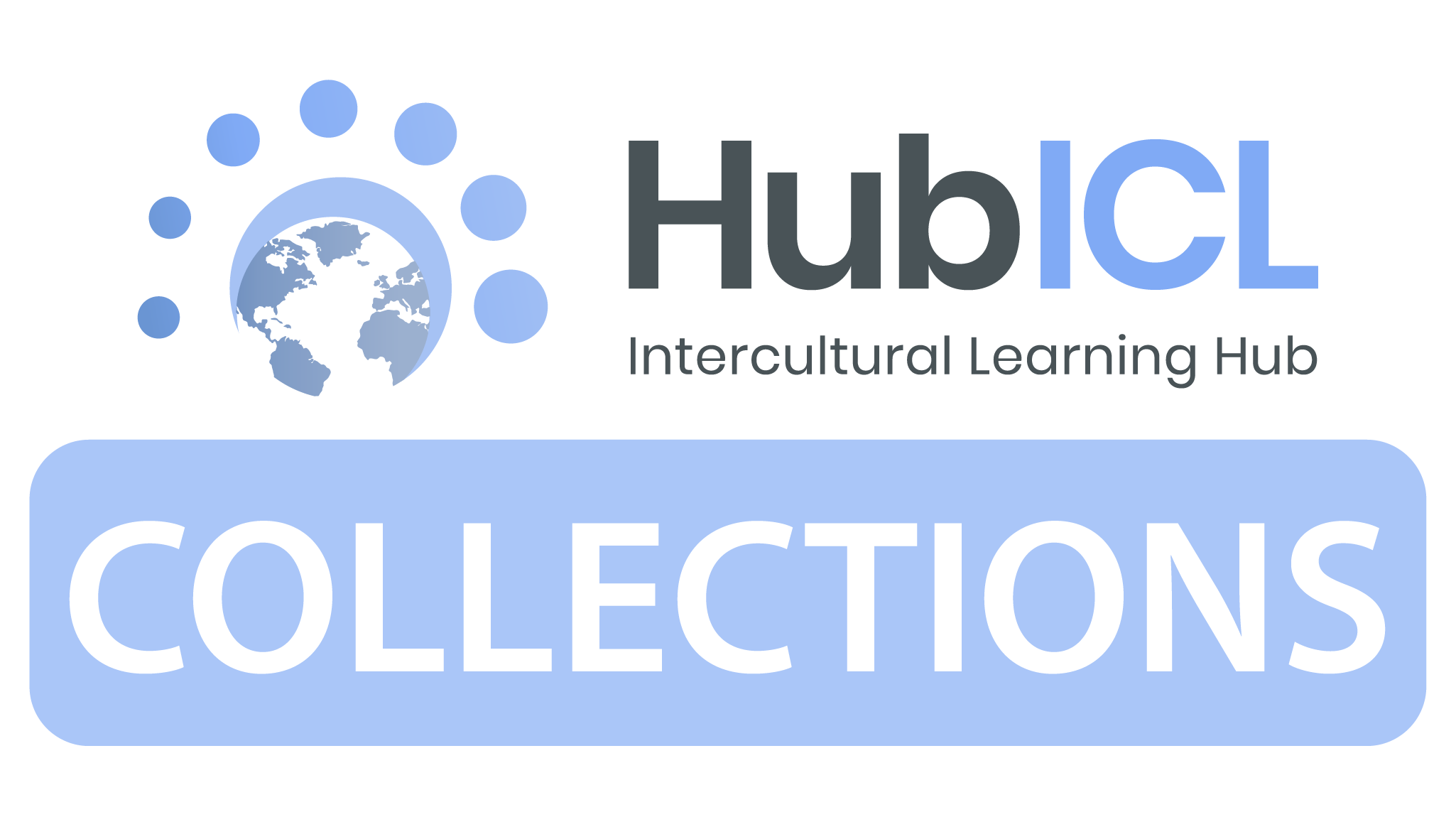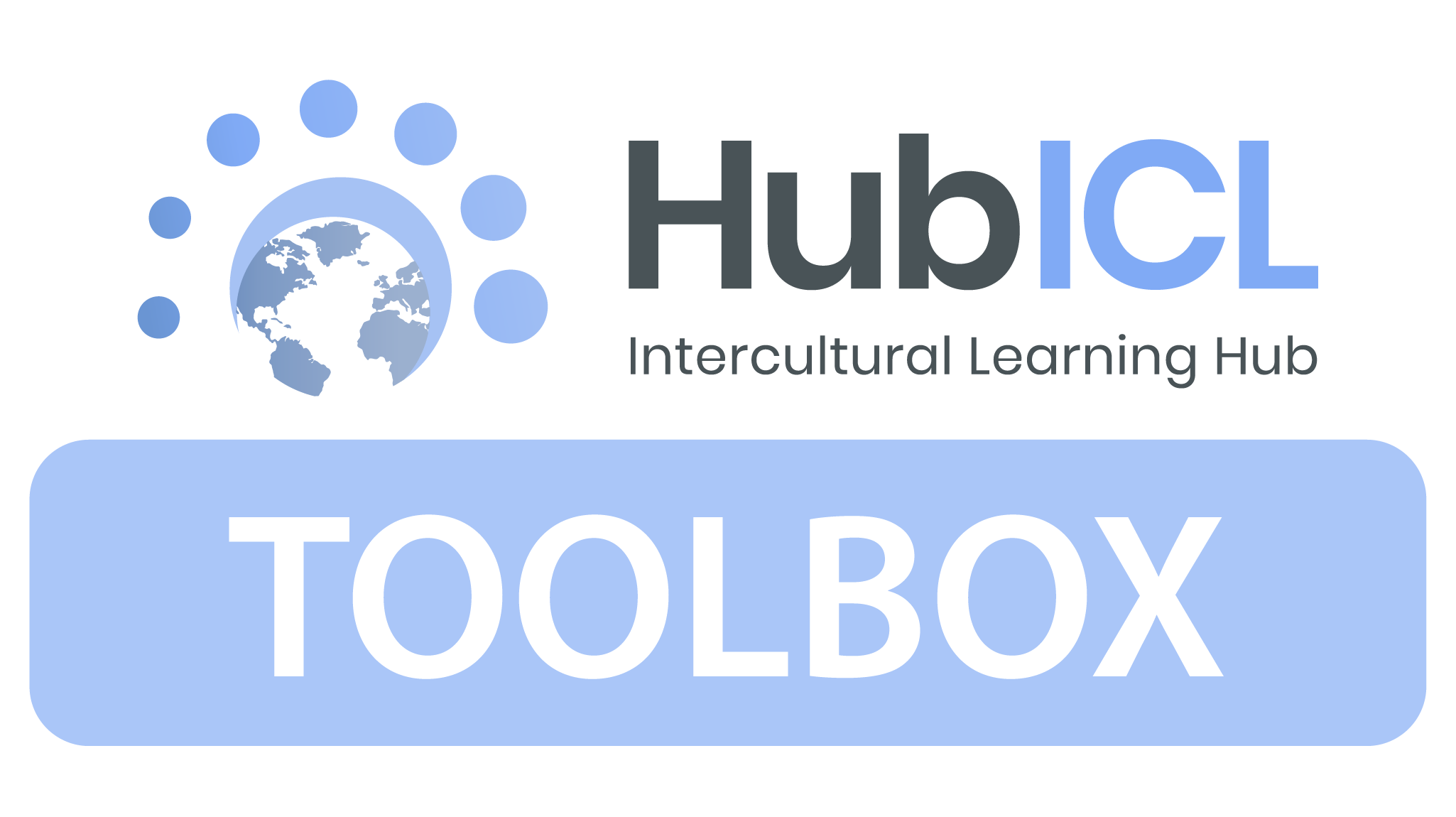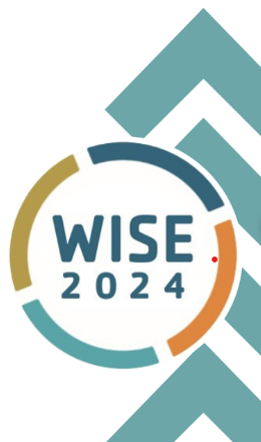HubICL Hubbub, December 2023
A note from the HubICL manager
As we neared Thanksgiving 2023, I was reminded by a report that I was writing that I had now been an account holder in the Intercultural Learning Hub for 2000+ days, as of November 12, 2203. Approached about managing this as-yet-unnamed science gateway in February 2018, I was just about to finish a new MS in communications and was looking forward to filling a public relations function for Purdue University's CILMAR. When representing CILMAR at conferences, what a privilege it has been these last 5 years to include the HubICL among CILMAR's many other projects! The HubICL has very much become like a favorite child for me.
HubICL Days Club
You may wonder how I know how many days have passed since I, and others, have created a HubICL account. There is only one HubICL report readily available using the administrator interface, and it lets me know how many days have passed between the first and last login of each HubICL account holder. I have no idea what each individual member did between first and last login; they might have only logged in those two times, or they might have used the HubICL often between those two dates.
Regardless of exactly what they "mean," these two dates give me a fun metric to play with. When I look at how long it has been between first and last login for each HubICL member, I call this "seeing who has joined the HubICL Days Club." When I looked at the HubICL Days Club on October 31, 2023, I saw that the top 10 users who do not work at Purdue had 1585-1812 days between first and last login. Coming in at #1 with 1,812 days in the (non-Purdue) HubICL Days Club was Michelle Campbell.
Michelle M. Campbell, PhD—Top non-Purdue user of the HubICL
 A CILMAR graduate assistant while finishing her PhD, Michelle got a head start on HubICL membership. In fact, she wrote many of the learning objectives when we were setting up the HubICL's first entries. A few months before she graduated, she began a consultancy position with Duke University's Pratt Graduate Communications & Intercultural Programs. In 2021, she moved back to her home state to work at University of Michigan, first as a program manager for post-graduate and faculty initiatives and now as director of culture, grants, and advancement in the Office of Culture, Community and Equity. To learn more about Michelle’s work, please visit OCCE Team – Office of Culture, Community and Equity (OCCE) (umich.edu).
A CILMAR graduate assistant while finishing her PhD, Michelle got a head start on HubICL membership. In fact, she wrote many of the learning objectives when we were setting up the HubICL's first entries. A few months before she graduated, she began a consultancy position with Duke University's Pratt Graduate Communications & Intercultural Programs. In 2021, she moved back to her home state to work at University of Michigan, first as a program manager for post-graduate and faculty initiatives and now as director of culture, grants, and advancement in the Office of Culture, Community and Equity. To learn more about Michelle’s work, please visit OCCE Team – Office of Culture, Community and Equity (OCCE) (umich.edu).
An interview with Michelle Campbell
To honor her top user status, we recently asked Michelle to tell our users about her HubICL experience.
Q: What part of the HubICL is your favorite—Toolbox, Professional Development Zone, Research Repository, Collections, Groups…? Why?
A: The Toolbox is my very favorite part of the HubICL! I am a teacher/practitioner at heart, and I love perusing the activities and assessments to see what could spark ideas for my context.
Q: What activity from the Toolbox have you used most often?
A: I think I use Thiagi's debrief questions the most. They work extraordinarily well in almost any learning context but are particularly fruitful for intercultural and DEI learning.
Q: How many times a day/week/month/year do you estimate that you use the HubICL?
A: At least a few times a month, but if I'm working on developing a new program or workshop, the tab never gets closed in my browser!
Q: Do you have a dog, cat, salamander, fish, etc. who works alongside of you?
A: When I'm working from home, my dear cats Bridget, Jane and Wej are usually not too far off!
Q: Have you ever submitted new or adapted content to the HubICL?
A: In the HubICL’s Toolbox, you’ll find several activities that were created or adapted by me:
- Self-Care 101, in which learners develop self-care guides and assess inclusivity for individuals with differeing backgrounds.
- Shipwrecked, in which learners work together to solve a puzzle and, in the process, develop techniques for verbal and nonverbal communication with characters with backgrounds and motives different than their own
- Who Do You Think I Am?, in which learners analyze and assess informed assumptions or generalizations about culturally different others.
Also, I am a co-author on two articles in the Research Repository:
- Intercultural learning in semester-long study abroad: A comparative analysis of the effectiveness of one-on-one versus group-mentored interventions
- Summary of Intercultural Learning in Semester Abroad Programs: A Comparative Analysis of Mentoring Programs
Q: Why is intercultural learning, assessment, research, etc. important to your career?
A: It might be easier to ask why it's not! I started off in English and Communications, and I taught in the higher ed classroom for almost a decade. I specialized in teaching multilingual students, many of whom were from China. I'm now the Program Director of Culture, Grants and Advancement in the Office of Culture, Community and Equity at University of Michigan College of Engineering. Not only is my team intercultural, but we work with folks from all over the globe who have come to Michigan for a world-class learning and research environment. I use intercultural learning frameworks and assessments as one of the approaches for DEI work in my office. This can also be especially helpful when consulting with faculty on the DEI portions of their engineering research grant proposals. Many people don't realize it, but most of the federal funders (e.g., National Science Foundation) now require many DEI components in outreach, education, workforce development and organizational operations for the projects they fund. My team works with Engineering faculty to help them develop inclusive and equitable projects and team cultures they need to get funding, and I use many of the principles of intercultural learning, assessment and research to undergird my consultation and sometimes the way I help faculty structure their grant proposals. Since January 2022, my team has consulted on over a billion dollars in potential funding, with over $100 million awarded to our faculty and their projects to date.
We are so glad to have you as a partner in intercultural learning, Michelle!
 What’s new in the HubICL?
What’s new in the HubICL?
Professional Development Zone--Improving and Growing
PDZ Course Upgrade
Through user testing, we realized recently that users were getting stuck when trying to move from one unit to another in the PDZ self-learning modules. We have located the obstacle and have removed it for easier navigation. This has also made it possible that learners can preview a course unhindered before enrolling. If you've looked at the PDZ courses before, we encourage you to sample these new improvements soon!
Coming soon!
TRANSFORMATIVE LEARNING THEORY 101 FOR INTERCULTURAL MENTORS by Kris Acheson-Clair
DEEP DIVE INTO IDENTITY by Alankrita Chhikara, Stephanie Oudghiri, and Araba Ayiaba Ziekpor Osei-Tutu
CURRICULUM MAPPING by Katherine Yngve
EMBEDDING, FACILITATING, AND ASSESSING INTERCULTURAL ACTIVITIES ON OPENNESS IN A WORLD LANGUAGE CLASSROOM by Tatjana Babic Williams
 You asked for a Collection…
You asked for a Collection…
At a recent meeting of the Intercultural Research and Practice working group of the World Council of Intercultural and Global Competence, we were discussing the need for a HubICL Collection of intercultural learning activities that are nontext-based, so as to be easier to use regardless of language spoken. The beginnings of a Collection entitled "Visual Learning and Nontext-based Intercultural Learning Activity Tools" is now available at https://hubicl.org/members/1005/collections/visual-learning-and-nontext-based-intercultural-learning-activity-tools.
Are there other activities that you use in your practice that you think we should add to the Collection?
 New Reviews of Tools in the Toolbox
New Reviews of Tools in the Toolbox
Did you know that you can help others with their facilitation by publishing a review in the HubICL’s Toolbox? These reviews let others know how you implemented a tool from the Toolbox and how it worked—or didn’t—in your context. You don’t have to be a professional in the field of intercultural learning to publish a review.
This month we received more than a dozen new reviews produced by participants from a wide variety of fields of interest who were taking part in CILMAR’s Intercultural Pedagogy Grant workshops, overseen by Dr. Dan Jones, senior intercultural learning specialist.
1. Activity: Addressing Microaggressions
https://hubicl.org/toolbox/tools/359/reviews
Reviewer: Virak Chan, clinical associate professor, Curriculum and Instruction, College of Education, Purdue University
2. Activity: Need to Belong Scale
https://hubicl.org/toolbox/tools/857/reviews
Reviewer: Jody Taylor Watkins, associate teaching professor, Cornerstone program, College of Liberal Arts, Purdue University
3. Activity: Different Similarities
https://hubicl.org/toolbox/tools/95/reviews
Reviewer: Kristen Bellisario, clinical assistant professor & faculty fellow with the Center for Global Soundscapes, John Martinson Honors College, Purdue University
4. Activity: Chair Power
https://hubicl.org/toolbox/tools/233/reviews
Reviewer: Kristen Bellisario, clinical assistant professor & faculty fellow with the Center for Global Soundscapes, John Martinson Honors College, Purdue University
5. Activity: Food Attitudes Behavior Openness Scale (FABOS)
https://hubicl.org/toolbox/tools/116/reviews
Reviewer: Alvin Jun Furiya, clinical assistant professor, Department of Nutrition Science & director of Didactic Program in Dietetics, College of Health and Human Sciences, Purdue University
6. Activity: DIVE (D.I.V.E. Model) (Describe-Interpret-Verify-Evaluate)
https://hubicl.org/toolbox/tools/498/reviews
Reviewer: Rachel Swank, licensing advisor/officer, Office of Teacher Education and Licensure, College of Education, Purdue University
7. Activity: Curiosity Profile Quiz (on-line)
https://hubicl.org/toolbox/tools/437/reviews
Reviewer: Noori Kim, assistant professor, engineering technology, Purdue Polytechnic Institute, Purdue University
8. Activity: Air Handshake Mingle and No Touch Greetings
https://hubicl.org/toolbox/tools/830/reviews
Reviewer: Jennifer Gray, Lyohub operations manager, Davidson School of Chemical Engineering, College of Engineering, Purdue University
9. Activity: Invitational Rhetoric Activity
https://hubicl.org/toolbox/tools/849/reviews
Reviewer: Ashley Bellet, assistant professor, Rueff School of Design, Art, and Performance, College of Liberal Arts, Purdue University
10. Activity: Foodways: Slurp
https://hubicl.org/toolbox/tools/734/reviews
Reviewer: Todd Kuethe, associate professor, Schrader Endowed Chair In Farmland Economics, Department Of Agricultural Economics, Purdue University
11. Activity: Exploring Language: Definitions Activity
https://hubicl.org/toolbox/tools/669/reviews
Reviewer: Michael Caffee, coordinator, External Relations & Career Services, Food Science, College of Agriculture, Purdue University
12. Activity: Six Differences
https://hubicl.org/toolbox/tools/107/reviews
Reviewer: Suzanne Zurn-Birkhimer, associate director, Women in Engineering Program, College of Engineering, Purdue University
13. Activity: Human Values Continuum
https://hubicl.org/toolbox/tools/37/reviews
Reviewer: Carolina Alvim Ferreira, lecturer, School of Languages and Cultures, College of Liberal Arts Purdue University
14. Activity: Universal Cultural or Personal Card Game
https://hubicl.org/toolbox/tools/484/reviews
Reviewer: Brett Bogart, lecturer, School of Languages and Cultures, College of Liberal Arts Purdue University
15. Activity: My Plan for Intercultural Growth
https://hubicl.org/toolbox/tools/505/reviews
Reviewer: Kathleen M. Hickey, lecturer, Rueff School of Design, Art, and Performance, College of Liberal Arts, Purdue University
 Upcoming HubICL Events
Upcoming HubICL Events
DYNAMIC EXERCISES TO SHIFT DEBRIEFING TIME FROM MUNDANE TO TRANSFORMATIVE
4-hour pre-conference workshop
Workshop on Intercultural Skills Enhancement (WISE)
Sponsored by Wake Forest Global
Information and registration here.
For the latest on what’s going on in the HubICL:
facebook.com/purduecilmar
linkedin.com/company/cilmar
purdue.edu/ipp/cilmar/learning/hubicl.html

deniol pahsy @ on — Edited @ on
Many people don't realize it, but most of the federal funders (e.g., National Science Foundation) now require many DEI components in outreach, education, workforce development and organizational operations for the projects they fund.
________________________________________________________
Project: snow rider 3d
Reply Report abuse